Affiliate links on Android Authority may earn us a commission. Learn more.
Google Pixel 6 vs Pixel 7: Which is a better bet?

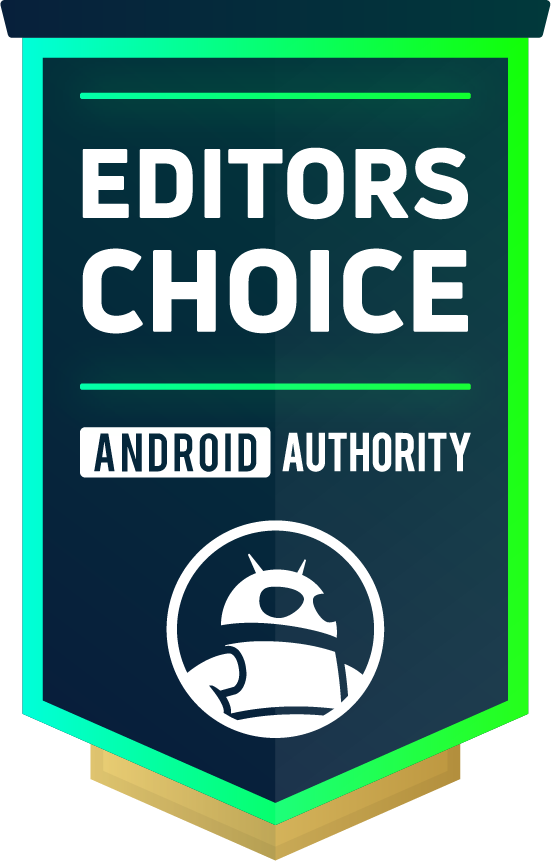


The Pixel 6 was one of the best phones of 2021. It offered tremendous value, sporting a great camera system, long battery life, a clean software experience, and a unique design for a starting price of just $600. However, the Google Pixel 7 brought a few new things to the table in 2022, which we really loved.
Are the upgrades significant enough to justify ditching the Pixel 6 for the latest model? Let’s find out.
Google Pixel 6 vs Pixel 7
Specs
| Google Pixel 7 | Google Pixel 6 | |
|---|---|---|
Display | Google Pixel 7 6.3-inch OLED 20:9 aspect ratio FHD+ resolution 2,400 x 1,800 416ppi 90Hz refresh rate HDR support 24-bit depth Gorilla Glass Victus front and back | Google Pixel 6 6.4-inch OLED 20:9 aspect ratio FHD+ resolution 2,400 x 1,080 411ppi 90Hz refresh rate HDR support 24-bit depth Gorilla Glass Victus front Gorilla Glass 6 back |
Processor | Google Pixel 7 Google Tensor G2 Titan M2 security | Google Pixel 6 Google Tensor Titan M2 security |
RAM | Google Pixel 7 8GB LPDDR5 | Google Pixel 6 8GB LPDDR5 |
Internal storage | Google Pixel 7 128GB or 256GB UFS 3.1 | Google Pixel 6 128GB or 256GB UFS 3.1 |
Battery and power | Google Pixel 7 4,355mAh (typical) 21W wired charging USB-PD 3.0 (PPS) 21W wireless charging 12W Qi wireless charging Battery share No charger in box | Google Pixel 6 4,614mAh (typical) 21W wired charging USB-PD 3.0 (PPS) 21W wireless charging 12W Qi wireless charging Battery share No charger in box |
Cameras | Google Pixel 7 Rear: - 50MP main f/1.85, 1.2-micron pixels, 1/1.31-inch, OIS - 12MP ultrawide f/2.2, 1.25-micron pixels, 114-degree FoV, fixed-focus Front: - 10.8MP f/2.2, 1.22-micron pixels, | Google Pixel 6 Rear: - 50MP main f/1.85, 1.2-micron pixels, 1/1.31-inch, OIS - 12MP ultrawide f/2.2, 1.25-micron pixels, 114-degree FoV, laser AF Front: - 8MP f/2.0, 1.12-micron pixels |
Water resistance | Google Pixel 7 IP68 | Google Pixel 6 IP68 |
Software | Google Pixel 7 Android 13 Pixel UI | Google Pixel 6 Android 12 Pixel UI |
Dimensions and weight | Google Pixel 7 155.64 x 73.16 x 8.7mm 197g | Google Pixel 6 158.6 x 74.8 x 8.9mm 207g |
Colors | Google Pixel 7 Obsidian, Snow, Lemongrass | Google Pixel 6 Stormy Black, Kinda Coral, Sorta Seafoam |
Design and display
The Pixel 7 has a smaller display than its predecessor, although the difference is minimal. It sports a 6.3-inch OLED panel compared to the 6.4-inch panel of the Pixel 6. The resolution is the same at Full HD+, and so is the refresh rate — 90Hz. Both are also protected against scratches by Corning’s Gorilla Glass Victus and sport a punch-hole for the front-facing camera.
However, the display of the Pixel 7 has received an upgrade, as it’s 25% brighter. More brightness means better visibility, especially when viewing it under direct sunlight.
Moving on to design, the two phones look more or less identical from the front. The back is a different story. Both featured a protruded camera bar, but the one on the Pixel 7 is more toned-down. It looks more professional and is made of aluminum instead of the glass you get with the Pixel 6. That’s not to say that the back of the Pixel 6 is ugly — far from it. I quite like it due to its uniqueness, but it’s just one of those things you either love or hate.
The build quality is excellent on both devices. They sport a glass back and a metal frame, which makes them look and feel premium.
When it comes to colors, the Pixel 7 comes in Obsidian (black), Snow (white), and Lemongrass (yellow). Each of these has a different camera bar color, which adds a bit of contrast to the device.
The Pixel 6 also comes in three colors — Sorta Seafoam, Kinda Coral, and Stormy Black. The first two stand out due to their dual-tone finish, which can either be good or bad, depending on your preference. All three come with a black camera bar.
Design is a subjective topic, meaning this category has no winner. While I personally like both of these phones, I prefer the more professional look of the newer Pixel 7.
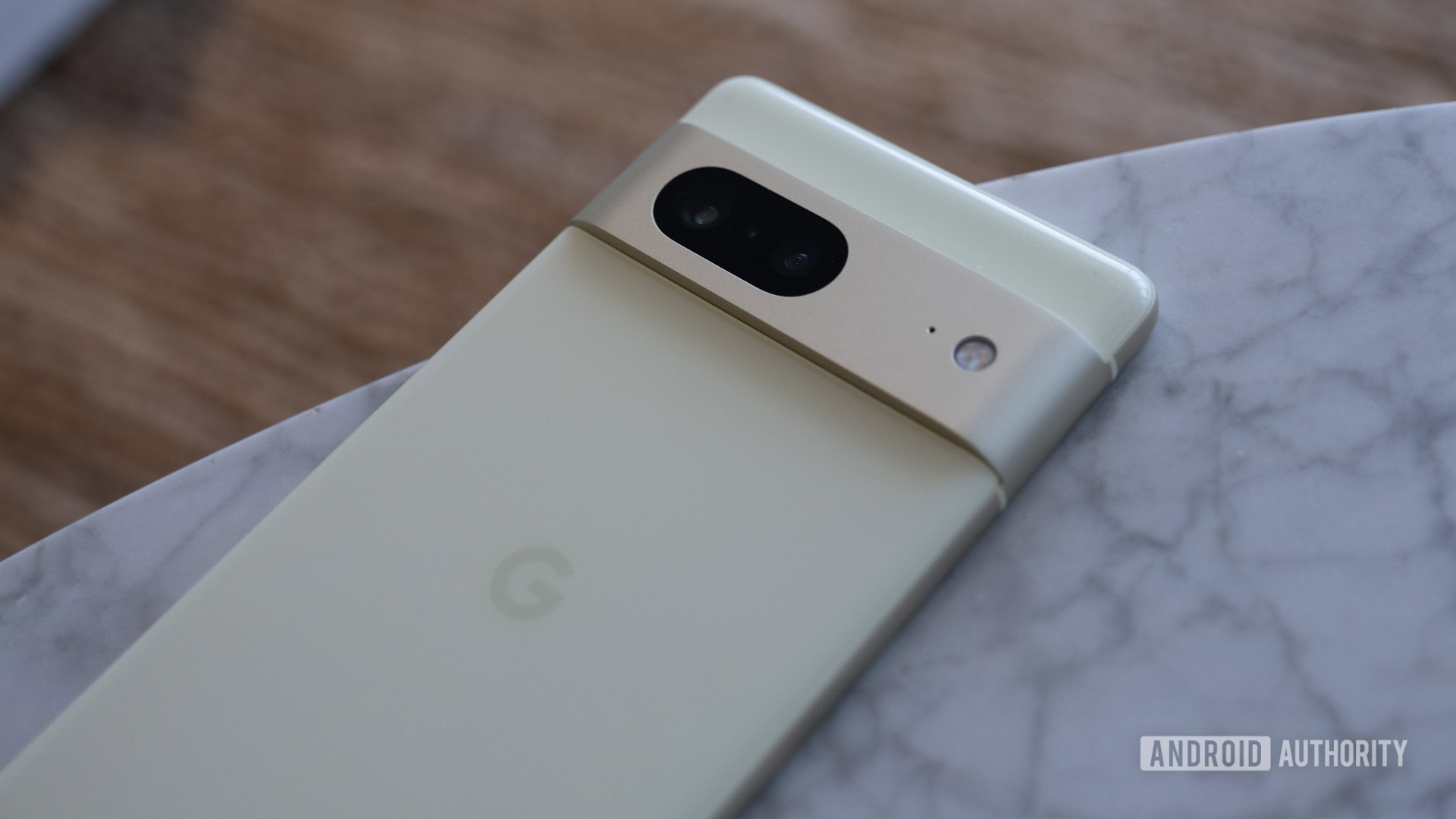
Hardware and cameras
The Pixel 7 brought a few new things to the table, although it’s not a substantial upgrade over the Pixel 6. It sports Google’s newer chipset, the Tensor G2. Google claims it’s 60% faster in AI workloads than the original Tensor that powers the Pixel 6. It’s also more power-efficient.
The memory configurations are the same between both devices. You get 8GB of RAM and either 128GB or 256GB of storage. Neither of the phones supports expandable storage.
Surprisingly, Google decided to equip the Pixel 7 with a smaller battery than the one powering the Pixel 6 (4,355mAh vs 4,614mAh). Even though the Pixel 7 has a smaller battery, the battery life has remained roughly the same since the latest Pixel, partially aided by a slightly smaller screen and a more power-efficient SoC. We were able to easily make it through a full day with the Pixel 7.
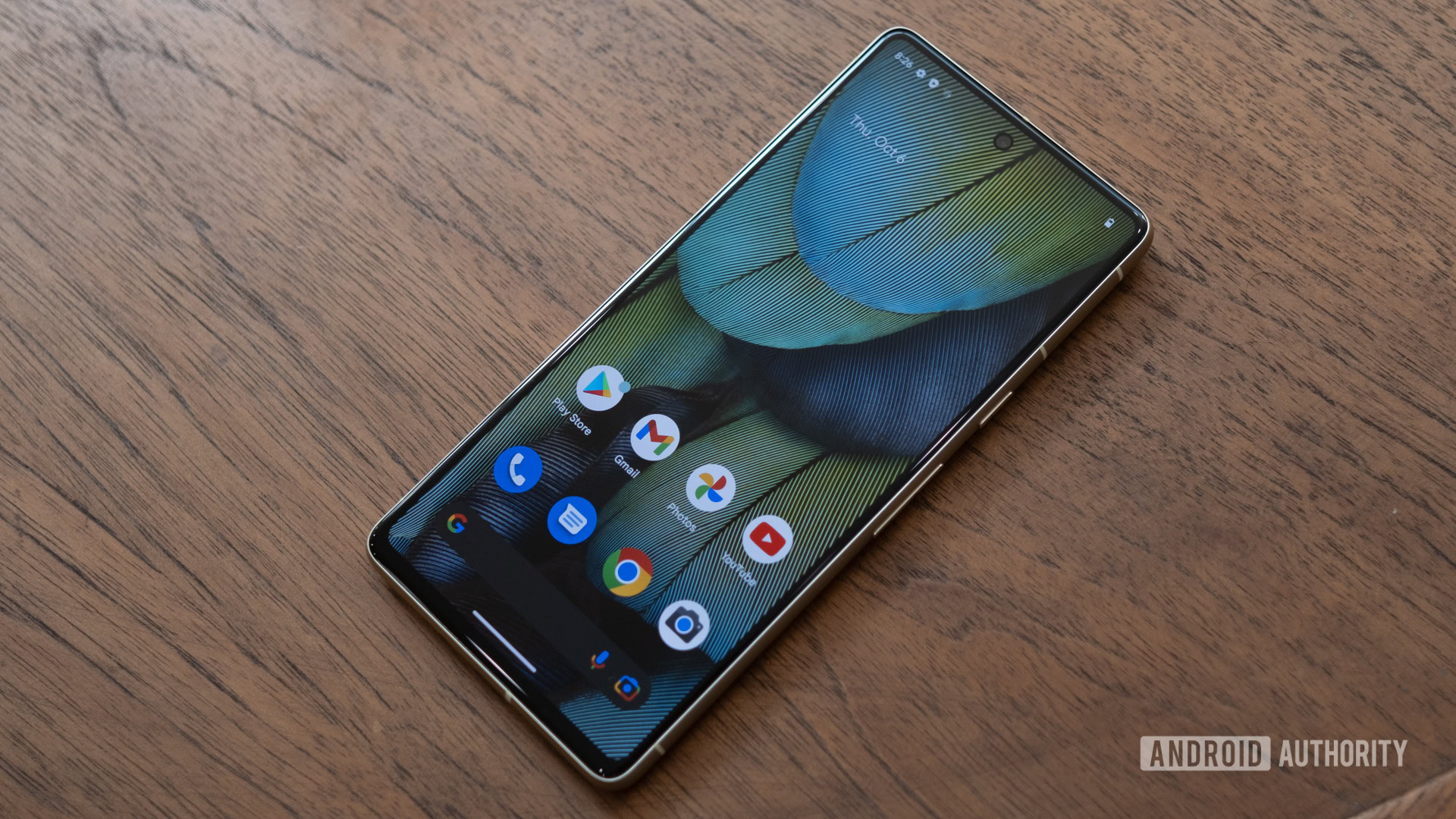
When it comes to charging, there are no significant differences between the two. Like its predecessor, the Pixel 7 supports fast charging that gets the battery from zero to 50% in 30 minutes. It also supports wireless charging and reverse wireless charging — called Battery Share by Google.
Like the Pixel 6, the Pixel 7 also sports just two rear cameras. The resolution stays the same as well. You get a 50MP primary camera and a 12MP ultrawide lens. But the camera system isn’t identical overall since there are few new features under the hood. The primary sensor on the Pixel 7 delivers 2x optical zoom, Night Sight works twice as fast, and the Real Tone feature has been improved. There are a few other features available, which you can learn more about in our Pixel 7 review, which we’ve linked to in the latter part of this comparison.
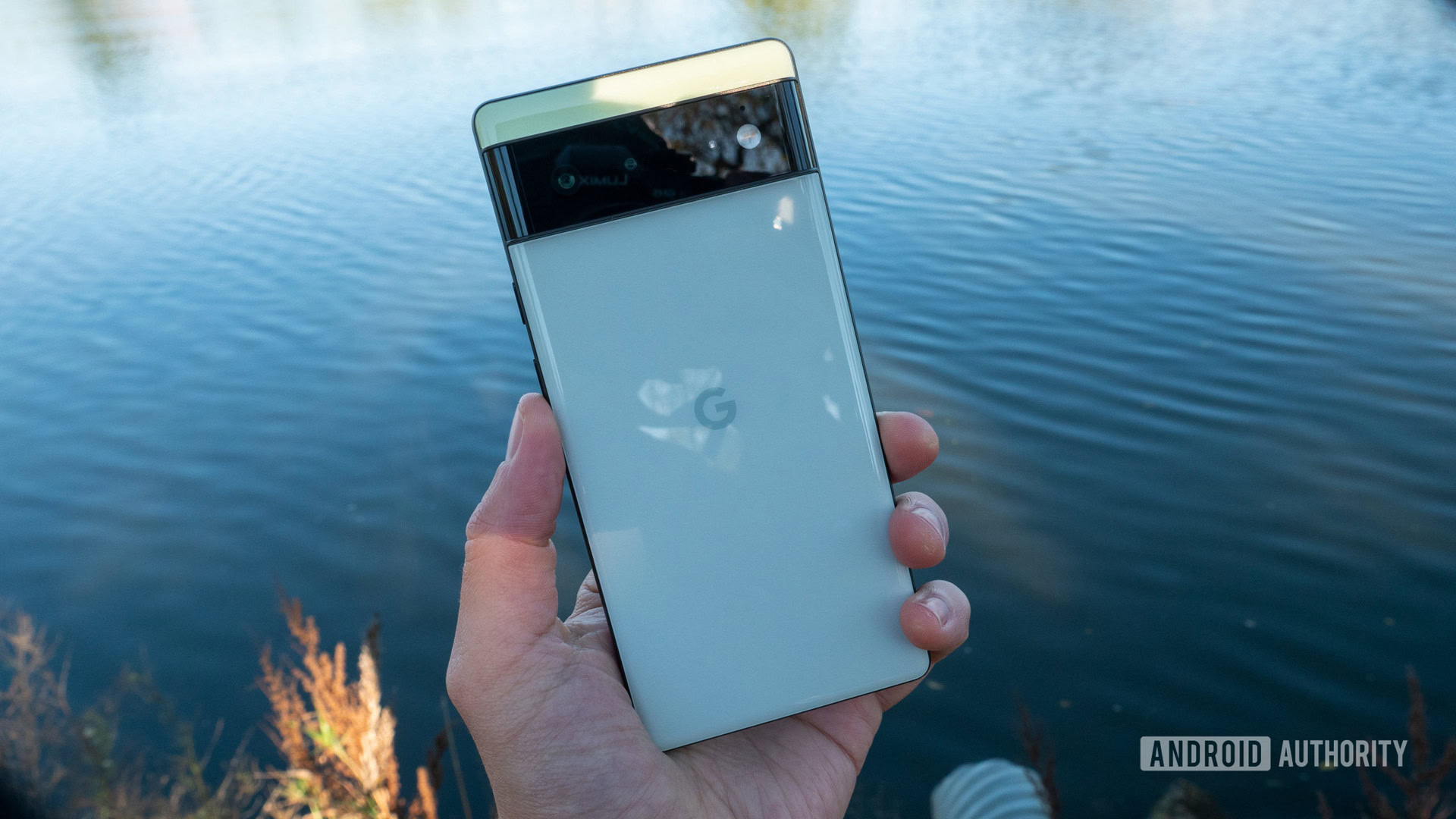
Moving on to selfies, the Pixel 7 comes with a 10.8MP lens up front. Google bumped up the resolution a bit compared to the Pixel 6, which sports an 8MP selfie snapper. But it’s not just about the resolution — the Pixel 7 also has a new feature for visually impaired people, which uses audio and haptic signals to help them stay in the frame and capture a better selfie.
The Pixel 7 lets you unblur old photos to bring them back to life.
Additionally, it has a broader field of view, can shoot 4K video, and sports a larger sensor for improved night-time selfies. The camera can unlock the device via facial recognition, which is safer than the standard 2D facial recognition you get with most Android phones.
Another interesting new feature is called Photo Unblur. It’s part of the Google Photos app and works on the device thanks to the power of the newer Tensor G2 chipset. You can use it to unblur old photos you may have from decades ago and bring them back to life. We found the results of the unblur feature to be pretty amazing.
Most of the other specs and features of the two phones are similar. They both have an IP68 rating, stereo speakers, and an in-display fingerprint scanner. They’ll both get three years of OS and five years of security updates. The Pixel 7 has an advantage here since it runs Android 13 and will get updated all the way up to Android 16. The Pixel 6’s OS support will end after Android 15 since the handset launched with Android 12.
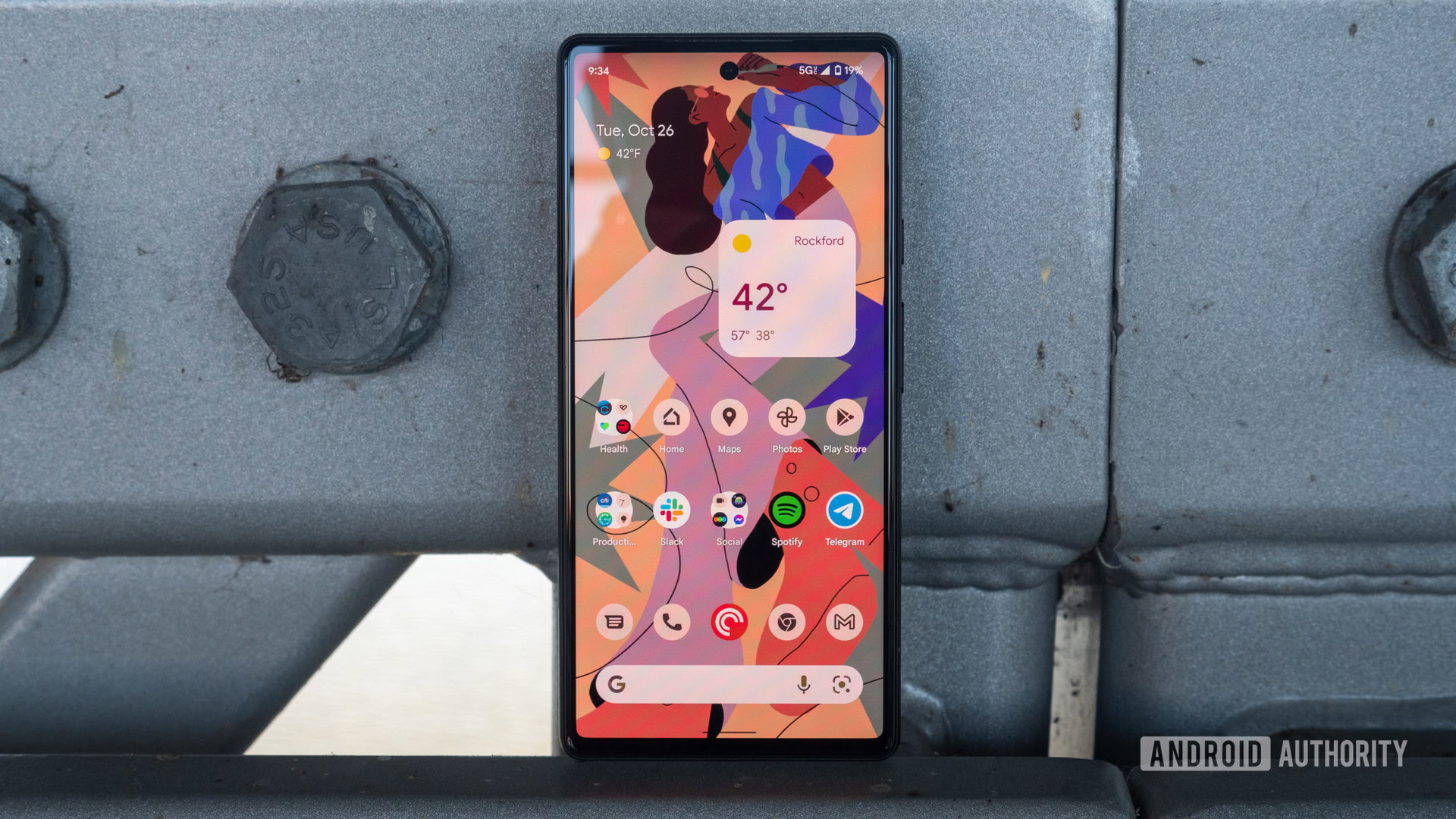
Price and availability
- Pixel 7 launch price: From $599 /£599 / €649
- Pixel 6 launch price: From $599 /£599 / €649
The affordable price tag was one of the main selling points of the Pixel 6. Google is following the same recipe with the Pixel 7, which also launched with a starting price of $600. The cost of the 256GB model is the same as the Pixel 6’s, coming in at $700.
Because there is now a successor, the Google Pixel 8, both the Pixel 6 and Pixel 7 can be found cheaper. If you really want to save, though, seeing the Pixel 6 at around $340 is common now. The Pixel 7 is still usually about $400 or so.
Google Pixel 6 vs Pixel 7: Should you upgrade?
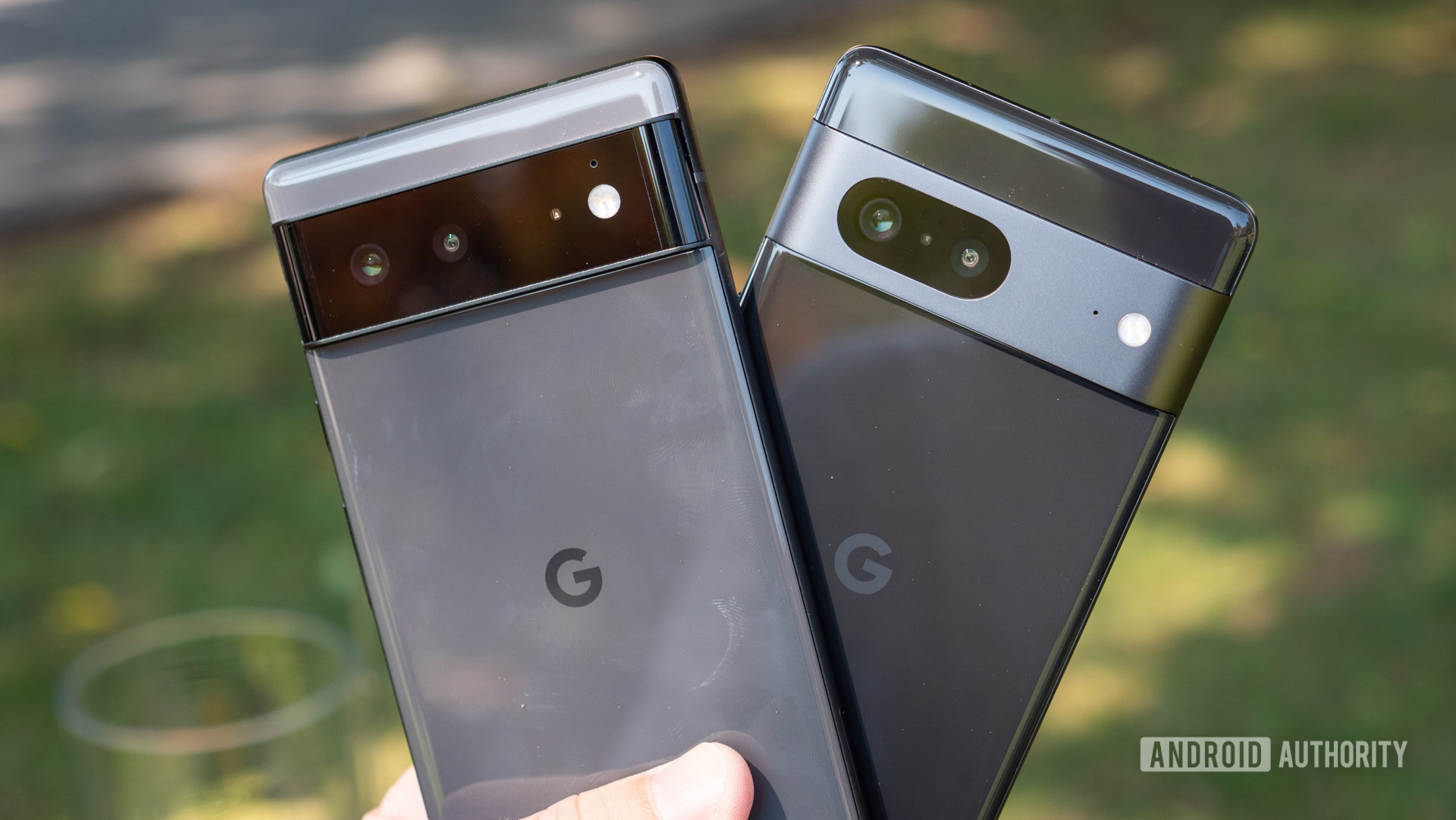
The Pixel 7 offers more than the Pixel 6 overall. However, Google’s Pixel 7 isn’t a massive upgrade over its predecessor. Sure, you get a faster chipset, improved cameras, and a brighter screen, but you also get a smaller battery. The display is also slightly smaller, although that may not necessarily be a bad thing.
With that in mind, we don’t think it’s worth upgrading from the Pixel 6 to the Pixel 7 for most people. The Pixel 6 is still a great phone, with plenty of power and a camera system that most people will enjoy.
If you have an older phone, upgrading to the Pixel 7 is a safe bet.
If you have an older phone, whether Google or any other manufacturer makes it, the choice is different. The Pixel 7 is a great handset and has a relatively affordable price tag, so if you’re in the market for a high-end device that won’t break the bank, the Pixel 7 is a safe bet.
If you want to dig deeper into what each phone offers, take a look at our Pixel 6 review and Pixel 7 review. Those dedicated posts may help you pick a favorite.

Upgraded cameras
Competitive price
You could save some money and go with the Pixel 6. We suggest you opt for the Pixel 7 if your budget allows it. Or at least consider the Pixel 7a. And if you have a bit more cash to spare on your new smartphone purchase, you should also check out our Google Pixel 8 review to see if it’s a better bet for you.